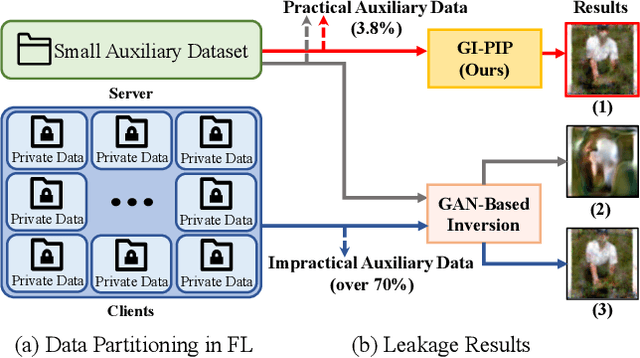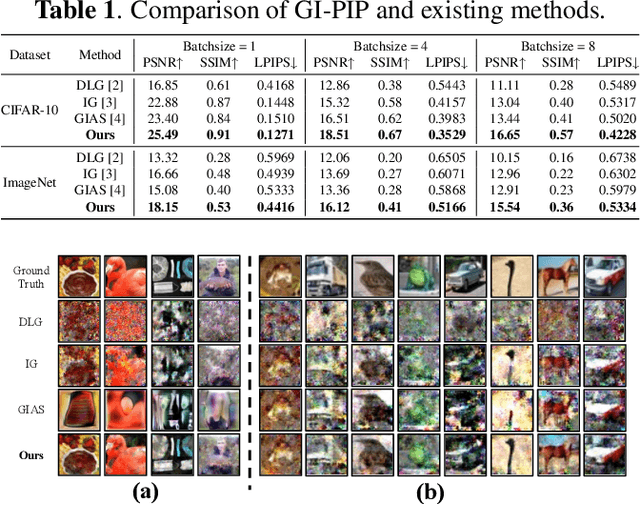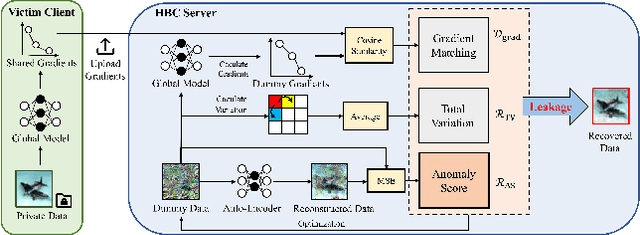Kailang Ma
GI-PIP: Do We Require Impractical Auxiliary Dataset for Gradient Inversion Attacks?
Jan 23, 2024



Abstract:Deep gradient inversion attacks expose a serious threat to Federated Learning (FL) by accurately recovering private data from shared gradients. However, the state-of-the-art heavily relies on impractical assumptions to access excessive auxiliary data, which violates the basic data partitioning principle of FL. In this paper, a novel method, Gradient Inversion Attack using Practical Image Prior (GI-PIP), is proposed under a revised threat model. GI-PIP exploits anomaly detection models to capture the underlying distribution from fewer data, while GAN-based methods consume significant more data to synthesize images. The extracted distribution is then leveraged to regulate the attack process as Anomaly Score loss. Experimental results show that GI-PIP achieves a 16.12 dB PSNR recovery using only 3.8% data of ImageNet, while GAN-based methods necessitate over 70%. Moreover, GI-PIP exhibits superior capability on distribution generalization compared to GAN-based methods. Our approach significantly alleviates the auxiliary data requirement on both amount and distribution in gradient inversion attacks, hence posing more substantial threat to real-world FL.
 Add to Chrome
Add to Chrome Add to Firefox
Add to Firefox Add to Edge
Add to Edge